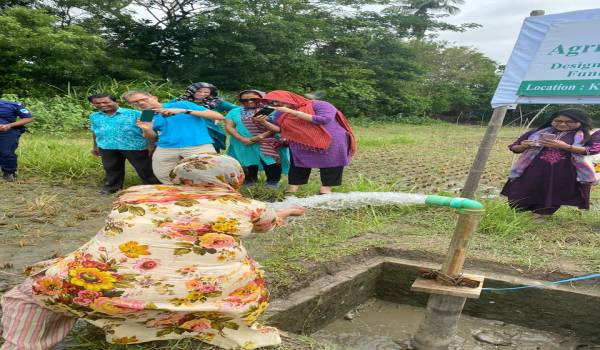
Date: Wednesday, 21 June 2023
Author: Shararat Islam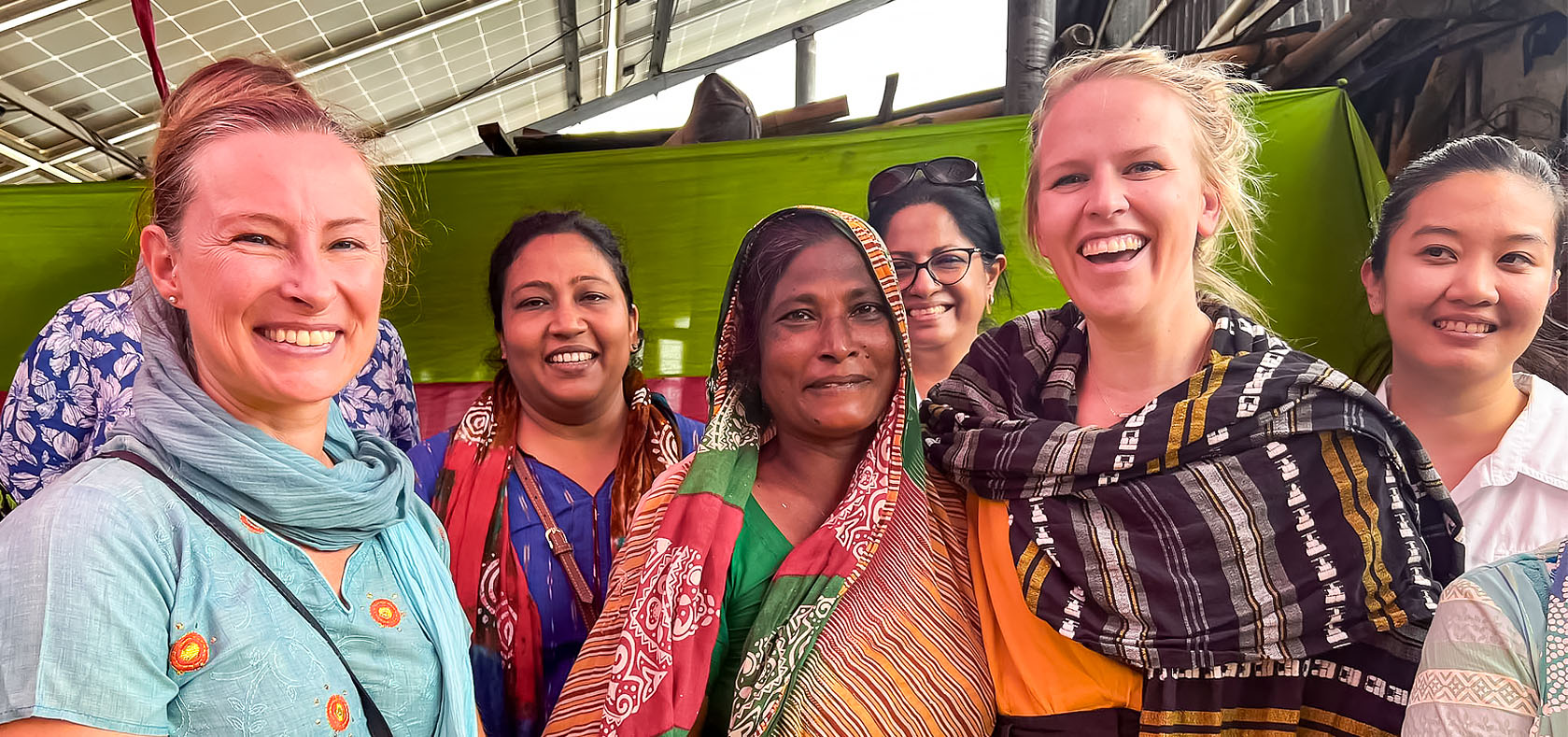
Reti Khatun, centre, shows visitors the hut, with lighting powered by solar panels from the EmPower programme, where she rears her goats in Chuadanga District, Khulna Division of Bangladesh. Beside her are representatives from EmPower and the Swedish aid agency SIDA, which funds the programme. This photo was taken on 18 May 2023. Photo: UN Women/Shararat Islam
Khulna, Bangladesh — Women farmers in southwest Bangladesh have shown a visiting delegation of Bangladesh and Swedish Government officials how much their livelihoods have been boosted by a Swedish-funded programme that helps protect women and girls from natural disasters.
The meetings with the women participating in the programme, EmPower: Women for Climate Resilient Societies, took place during a field visit jointly organized by UN Women and United Nations Environment Programme (UNEP) to Khulna Division from May 17 to 19 May 2023. UN Women and UNEP jointly implement EmPower, funded by the Swedish International Development Agency (SIDA) to promote gender equality and human rights in climate change and disaster risk reduction efforts in Asia and the Pacific.
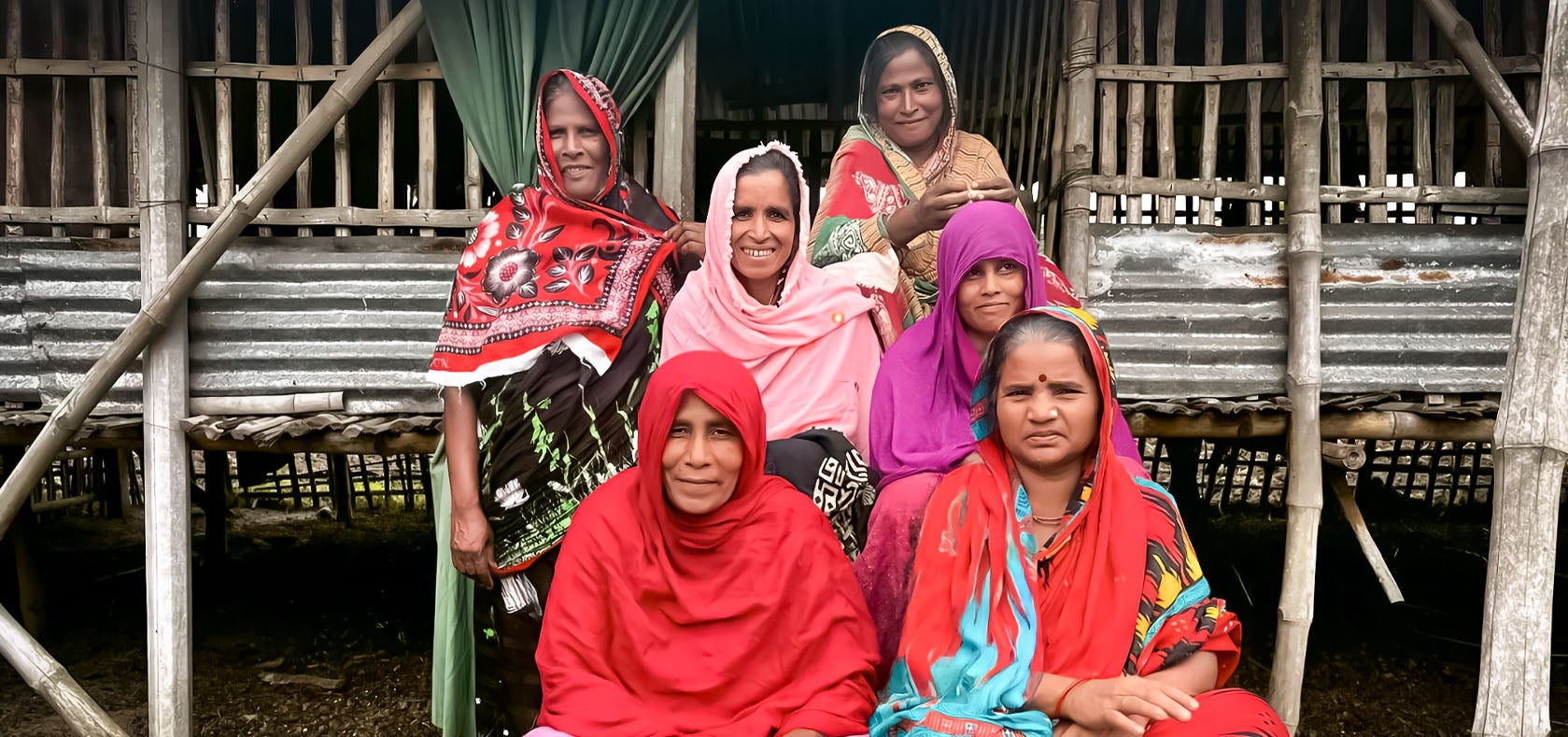
Goat farmers who benefit from Empower, a disaster risk reduction project jointly run by UN Women-United Nations Environment Programme, pose on 18 May 2023 in Kulpala Math, Chuadanga District, Khulna Division of Bangladesh. Photo: UN Women/Shararat Islam
The visitors included the Secretary of the Ministry of Environment, Forest and Climate Change, Bangladesh, Dr. Farhina Ahmed; Tove Goldmann, First Secretary, Senior Programme Manager Environment & Climate Change, Regional Development Cooperation Section, Embassy of Sweden; Nayoka Martinez Bäckström, First Secretary, Environment & Climate Change, Development Cooperation Section, Embassy of Sweden; and UN Women and UNEP representatives.
The delegation met with women small entrepreneurs and about 10 representatives of 56 grass-roots women-led civil society organizations (CSOs) that have received leadership training under EmPower.
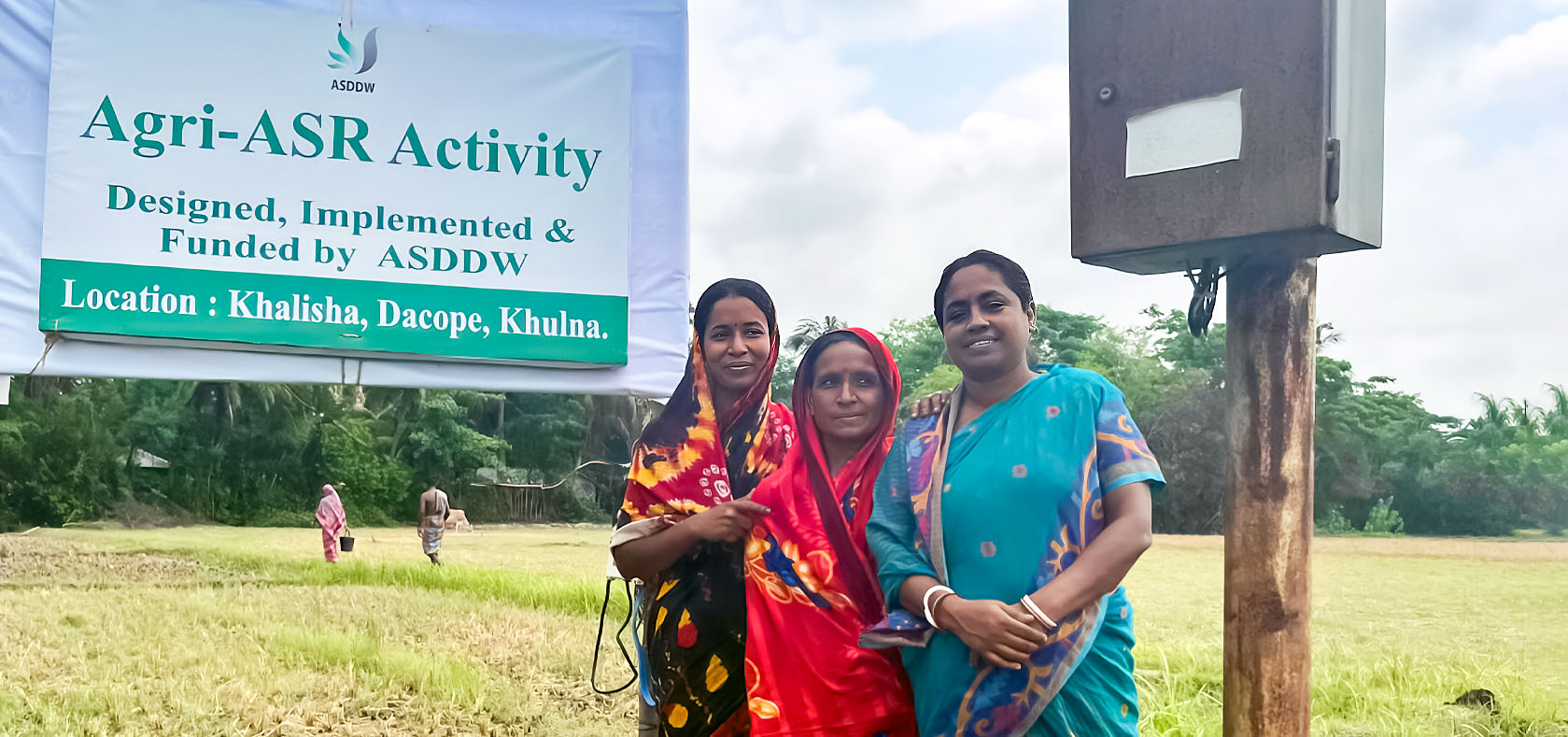
Farmers show off the system their system for collecting and storing rainwater in Khalisha, Dacope, Khulna Division of Bangladesh. The system was installed by the Association for Social Development & Distressed Welfare, a civil society group supported by the UN Women-United Nations Environment programme’s EmPower project. This photo was taken on 19 May 2023. Photo: UN Women/Shararat Islam
Under one EmPower project, women goat farmers switched to solar panels to light their goat sheds. From December 2021 to February 2022, with UNEP technical support, the project gave farmers like Reti Khatun in Chuadanga District solar panels and solar-powered pumps to replace their noisy, smoky diesel pumps, and trained them how to use these to make their work more environment-friendly, productive and cost-effective (no more electricity bills). The project was implemented with support from Infrastructure Development Company Limited, a Bangladesh partner organization of UNEP.
“Previously, we used to work in households, doing domestic chores,” Khatun told the visiting delegation. “And now we’re involved in goat rearing, which is a much better trade for us. Women in my village are interested in goat rearing as it helps to build a sustainable income source.”
As a household helper, Khatun had made USD10-15 per month while working full-time. After switching to rearing goats, she has been making USD20-25 more per month while working several fewer days. Her success has inspired other women in her village to become entrepreneurs and strive for economic security.
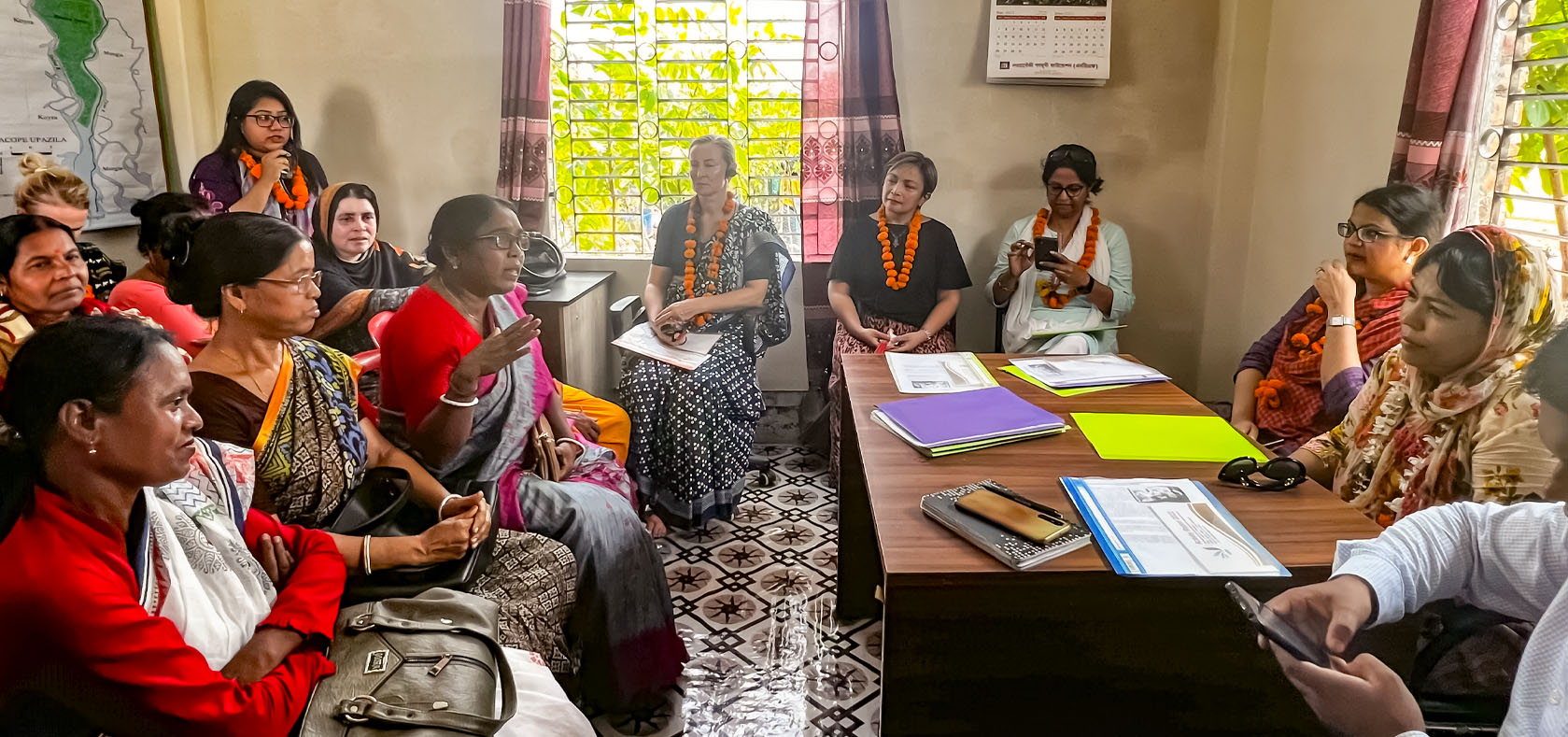
Women leading civil society organizations speak about the challenges of women and rural development with the Bangladesh Secretary of the Ministry of Forest, Environment and Climate Change, Dr. Farhina Ahmed, seated at the centre of the table. The meeting took place on 19 May 2023 in Dacope, Khulna Division of Bangladesh, on 19 May 2023. Photo: UN Women/Shararat Islam
In Dacope, another project location in Khulna Division, the women CSO leaders demonstrated two community-led adaptation projects that they had started, managed and financed after receiving leadership and organizational skills training led by UN Women.
They showed the visitors the Rainwater Harvesting System that they diligently maintain to collect and store rainwater for household and irrigation use. In a region plagued by saline intrusion and arsenic contamination, this adaptation technology has proven vital in addressing water supply challenges. The system was set up by the Association for Social Development & Distressed Welfare, a grass-roots women-led CSO.
"We live in an area where disaster is common. So we have to accept that disasters will be a part of our life and we have to learn to adapt," said the chairperson of the association, Lipika Baraigi, in the meeting between the CSOs and the visiting delegation.
The local women also demonstrated their improved cookstoves, which require less wood and emit fewer pollutants, thus reducing carbon dioxide emissions and air pollution. The women had previously used mud stoves, which cause eye, heart and lung infections. Also, the new cookstoves can be carried to cyclone shelters.
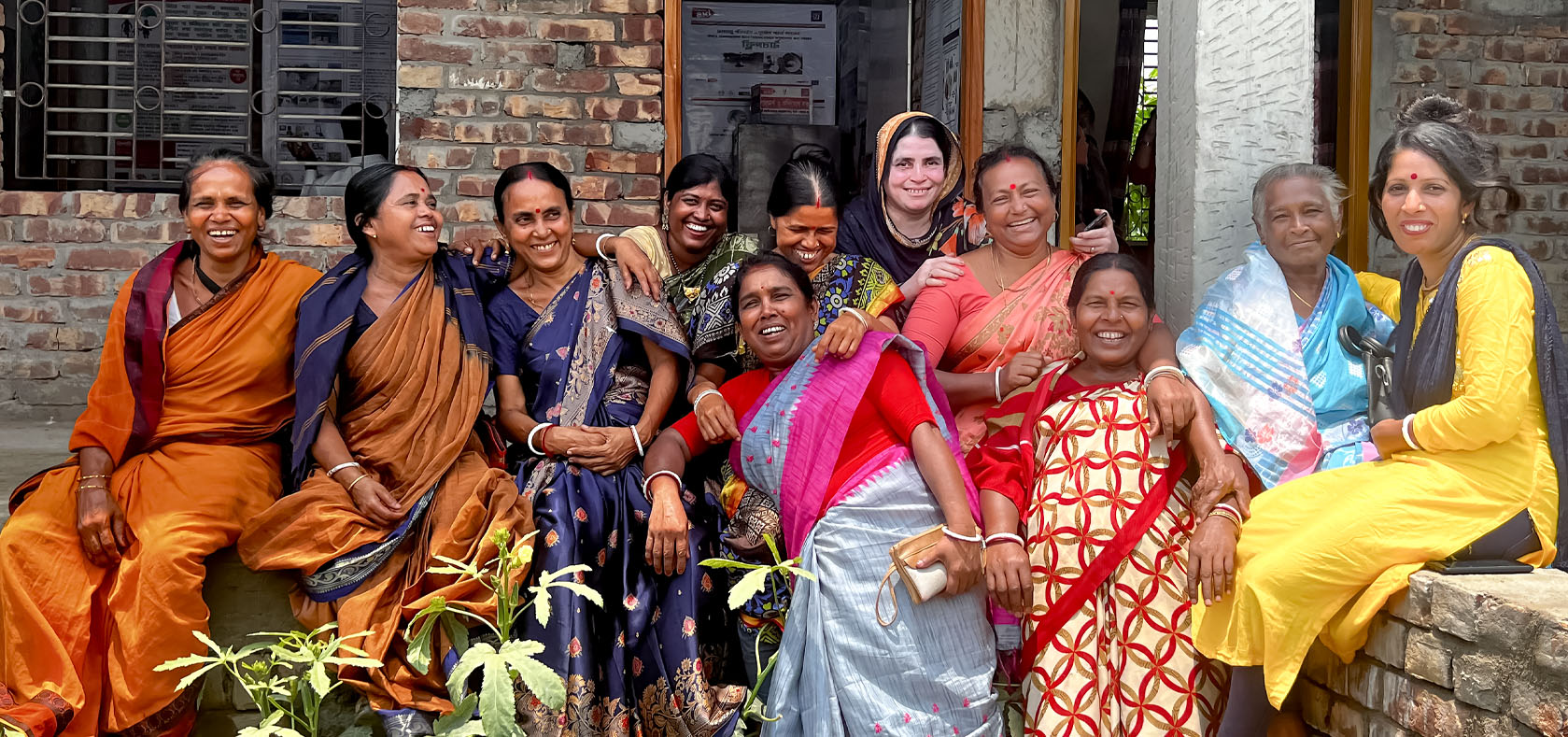
Women leading civil society organizations supported by UN Women under the EmPower disaster risk reduction programme pose in Dacope, Khulna Division of Bangladesh, on 19 May 2023. Photo: UN Women/Shararat Islam
“I am so impressed to witness the courage and capacity you all have showcased,” said Dr. Ahmed, Secretary of the Ministry of Environment, Forest and Climate Change. “We will support the installation of more solar pumps through engaging local authority. The Government is always ready to improve the lives of the people we serve, including women, by ensuring basic services such as food and energy."